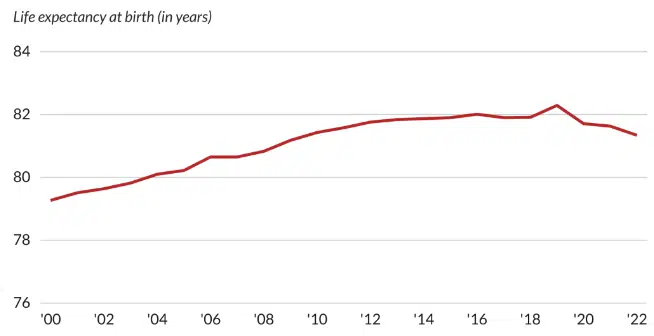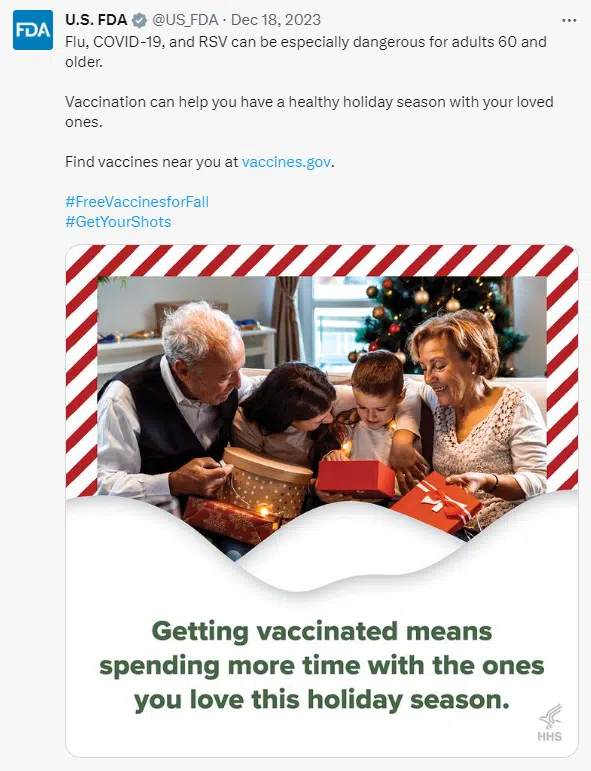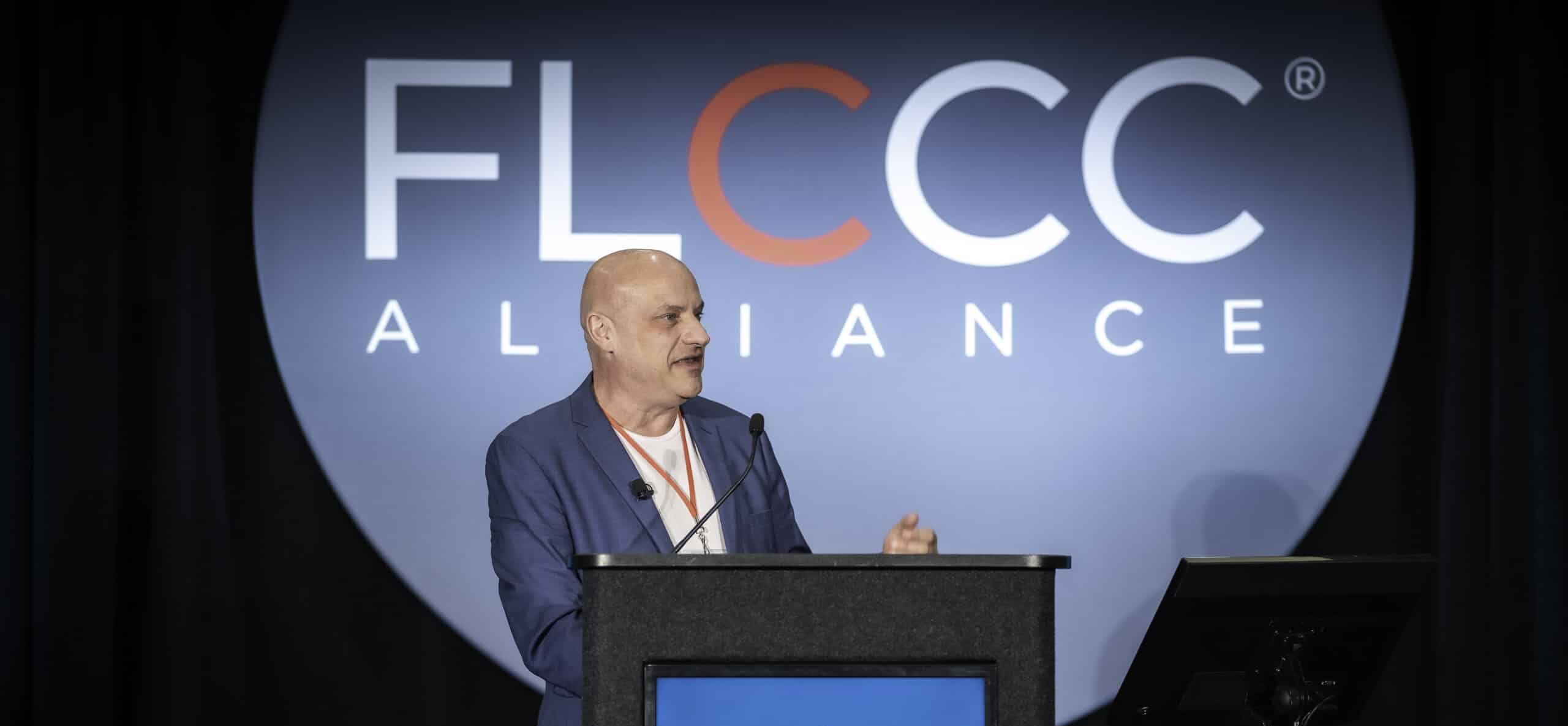COVID exposed many problems in the healthcare system. Will we learn from our mistakes or be doomed to repeat them?

For anyone paying attention, it’s clear our medical system is severely flawed at the moment. The cracks were showing before COVID, but now they could not be more exposed.
Imagine a young, healthy individual with access to the best healthcare insurance who suddenly falls ill. They face a series of misdiagnoses and ineffective treatments that result in a shortened lifespan. This story is not unique. In fact, it’s becoming increasingly common.
Statistical data from high-income nations like Canada shows life expectancy has dropped 3 years running from 2020 to 2023. But, Canada has healthcare for all – can we really blame the drop on a lack of insurance coverage?
As it turns out, Americans with good health insurance are not faring better. A report by FLCCC’s Dr. Pierre Kory and reporter Mary Beth Pfeiffer shows death rates are rising even among young working-age people.
In other words, the people you’d expect to have the best health are dying earlier. With health outcomes declining each year, it’s time for the medical community to unite and reverse this disturbing trend.

Data source: Statistics Canada / Graph source: The Canadian Free Press
How Can We Fix the Problems with Our Healthcare System?
So… how do we begin to repair our broken medical system?
That’s one of the big questions we tackled at our Winter 2024 FLCCC Conference in Phoenix, Arizona. It was the subject of a panel discussion segment led by FLCCC founders Dr. Pierre Kory, Dr. Paul Marik, along with FLCCC board member Dr. Chris Martenson and Mary Holland, president of Children’s Health Defense.
With Dr. Kory and Marik, we have two incredibly accomplished physicians, each with knowledge in a diverse set of medical fields. With Dr. Martenson, we have a trained neuroscientist, educator, and creator of the ever-popular Peak Prosperity platform. And Mary Holland is a skilled lawyer who has been fighting against Big Pharma and advocating for medical freedom and informed consent for decades.
In this article, we’ll summarize some of the key healthcare issues they’ve been emphasizing in recent years:
- Problem 1: Repurposed Drugs are Being Suppressed
- Problem 2: Public Health Institutions Approve & Promote Unsafe Products
- Problem 3: The Medical Narrative Has Been Corrupted
- Problem 4: Medical Journals Have Been Infiltrated
- Problem 5: There is an Underemphasis on Preventative Care
Problem 1: Repurposed Drugs are Being Suppressed
There’s always been a subtle attempt to downplay the importance of repurposed drugs in medical practice. New medicines are often touted as better, more effective, and safer. But, can we ever be sure those claims aren’t motivated by a desire for profit?
After all, it costs millions to bring a new pharmaceutical product to the market. From there, the goal is to make as much money as possible before the patented compound becomes generic. Once generic, the price of medicine can be driven down by as much as 90%.
If you are in the business of making serious money, generic drugs won’t get you there. Generic drugs are actually a direct threat to the financial success of novel drugs. Like any other business, pharmaceutical companies aim to maximize returns by eliminating threats to the new medicines that they’ve invested in.
Think of all the negative press repurposed drugs received during COVID times. Remember when a certain President made a passing comment about a certain medicine and then the world went a bit mad? Soon after that, suspicious studies emerged along with claims that Hydroxychloroquine was not only ineffective, it was dangerous.
As Chris Martenson pointed out in the video below, the attacks on HCQ did not pass the smell test:
And of course, who could forget Dr. Pierre Kory’s courageous senate testimony in December 2020? He thought the entire world would mobilize behind ivermectin and end the pandemic. Instead, he became the target of a coordinated smear campaign aimed at defaming him and spreading lies about a promising repurposed medicine.
The attacks on ivermectin run so deep that Pierre wrote a book on the subject along with co-author Jenna McCarthy. It’s safe to say the world would be a vastly different place right now if doctors were “allowed” to use repurposed drugs how they see fit.
Problem 2: Public Health Institutions Approve & Promote Unsafe Products
It’s one thing to make it difficult for doctors to use the treatments they think will work best. It’s another to actively promote unsafe products.
We’d expect that kind of behavior from profit-oriented pharmaceutical companies. But would you expect it from the government agencies whose duty is to protect you? Take this example from the FDA, posted in late 2023:

Leave aside the fact that the COVID vaccine is neither safe nor effective. Should the FDA be engaged in actively promoting products of any kind? Here’s their stated objective:
“The Food and Drug Administration (FDA) is responsible for protecting the public health by assuring the safety, efficacy, and security of human and veterinary drugs, biological products, medical devices, our nation’s food supply, cosmetics, and products that emit radiation.”
If they truly are protecting “the public health,” why are they ignoring the multiple safety signals, including from VAERS, the vaccine safety reporting system the FDA co-manages with the CDC? In the past, unsafe products have been quickly pulled from the market. Now, they seem to be actively promoted by the very same institutions meant to scrutinize them.
The full story on why that might be happening is beyond the scope of this article, but as the following video discussion shows, there really is no shortage of reasons to avoid the jab:
Problem 3: The Medical Narrative Has Been Corrupted
In recent years, we’ve seen the FDA and the CDC become big pharma pitchmen. Sadly, several other channels and sources of information have also been compromised. These include:
- Medical Boards
- Medical Conferences
- The Mainstream Media
- Public Health Authorities
- Scientific Journals
- Global Health Organizations
If not for organizations like Children’s Health Defense, React19, and FLCCC, where would doctors and patients seek out honest and transparent medical information?
Despite our efforts, pharmaceutical companies have systematically infiltrated and tainted virtually every source of medical information. If that wasn’t enough, don’t forget that doctors are visited weekly by pharmaceutical sales reps intent on influencing how they practice medicine.
For a primer on what happens when corrupt forces come together, look to the story of whistleblower Dr. Umberto Meduri, a co-founder of the FLCCC. He joined us on our Weekly Webinar to tell the story of how these forces tried to block the use of yet another lifesaving, repurposed, affordable drug.
Here’s what people fail to realize: a huge amount of bad data gets promoted, and much of the good data gets swept under the rug. The result? Medical care suffers, mortality rates go up, and higher rates of chronic conditions emerge.
👀 Did you know? Dr. Meduri is running a petition against the suppression of lifesaving research. Click here to sign it!
Problem 4: Medical Journals Have Been Infiltrated
Here’s a healthcare system problem you probably didn’t expect: corrupt medical journals.
How corrupt? Just about every way you can imagine:
- Studies with conflicts of interest are routinely published
- Publication bias where journals prefer to publish results with favorable findings
- Corrupted peer review process
- Accessibility issues that limit the reach of important studies
- Endlessly replicated fake or irrelevant studies
This turns out to be a tough problem to solve. That’s because there are still many journals that operate with integrity. Further to that, ethical studies are still published in journals that are known to be compromised.
When you think about a staged television news segment aimed at shaping public perception, what are the main components? A sympathetic host, an “authoritative expert,” and a manufactured study published in a prestigious medical journal.
If you put those pieces together, rinse, and repeat, then you could convince millions of people to willingly take an experimental, untested, and dangerous product. And if you do that really well, you could even convince people to act as zealots pushing your narrative.
Problem 5: Underemphasis on Preventative Care
Prevention is the best medicine. Remember that one?
It’s been around for a while. The phrase, “an ounce of prevention is worth a pound of cure” was first popularized by none other than Benjamin Franklin in the 1700s.
I wonder what Ben would think of our current situation…
Compared to acute care, preventive care receives less emphasis and funding, despite the potential to improve health outcomes and reduce costs in the long term.
There are numerous examples. As Dr. Martenson points out, vitamin D has been shown to cut COVID deaths in half. That finding emerged even in studies where there was a clear attempt to rig the data against vitamin D.
And really, vitamin D is just one of many immunity-boosting supplements that would have a huge impact on public health.
Affordable and actionable health interventions are often strangely downplayed or ignored. If multiple studies show the importance of vitamin D, why didn’t governments mobilize an effort to distribute it rather than a totally new “vaccine” technology?
The answer: follow the money. The federal government in the United States spent $30 billion on 1.2 billion doses of COVID vaccine. Isn’t it safe to assume vitamin D would have been cheaper and safer? Wouldn’t it have made more sense to tell people to get more sunshine, rather than coerce them into accepting an unproven treatment?
We wrote about this phenomenon recently in our cancer solutions article too. Dr. Marik highlights that up to 40% of cancers could be prevented with a combination of intermittent fasting, supplements, lifestyle changes, and repurposed drugs.
Wrapping Up
Our healthcare system has a lot of problems, and we’ve talked about some big ones here. It’s not just about getting more people insurance or more doctors. We need to really understand why even people with insurance are living shorter lives.
Good healthcare means getting both good access and good quality. And we need the right information to make the best health choices. We’ve got a lot of work to do to fix these problems, and that’s why the FLCCC Conference in Phoenix is so important.
Come join us this February to be part of the solution! Tickets are going fast, so grab yours soon. We can’t wait to see you there.





